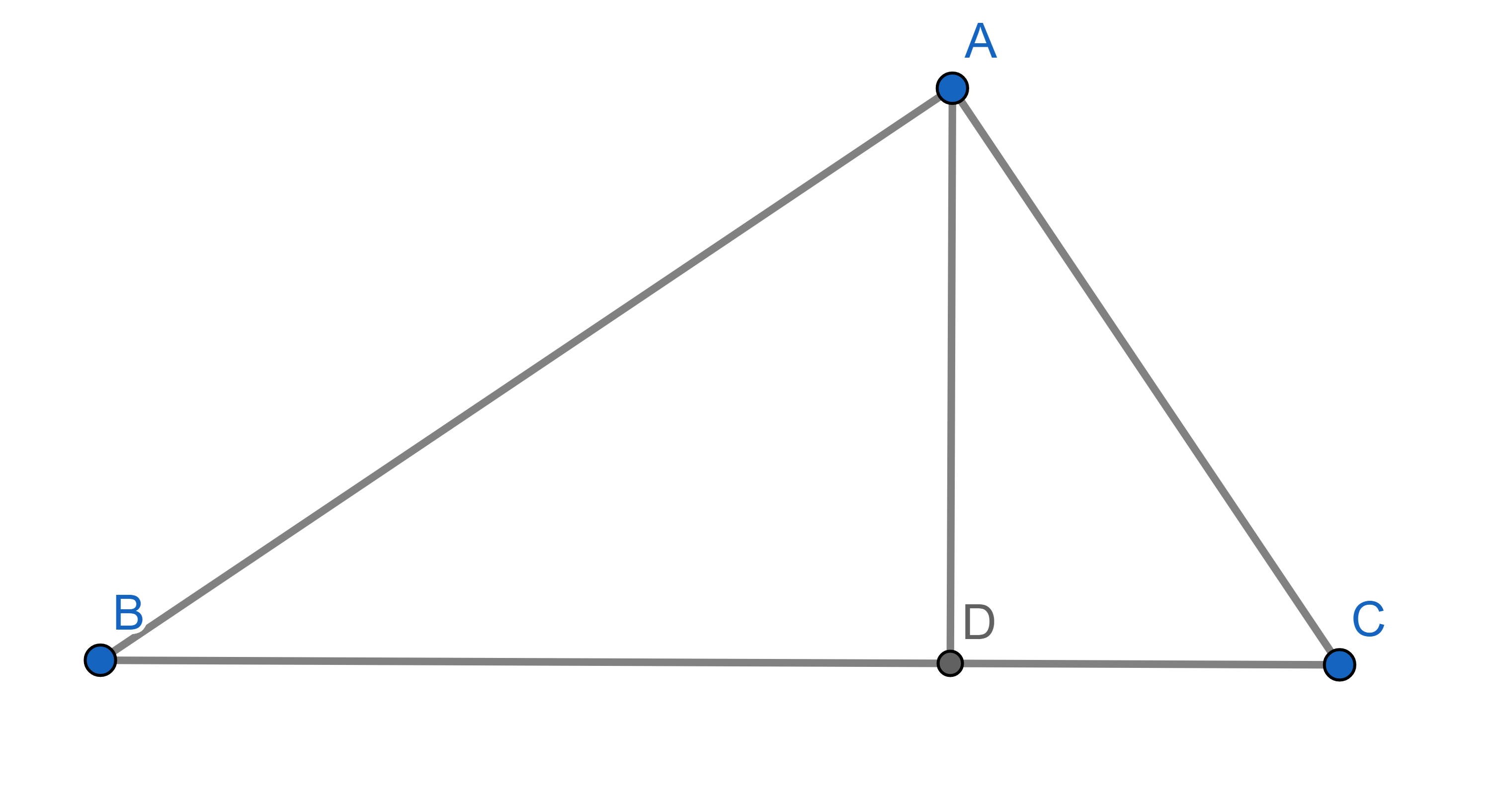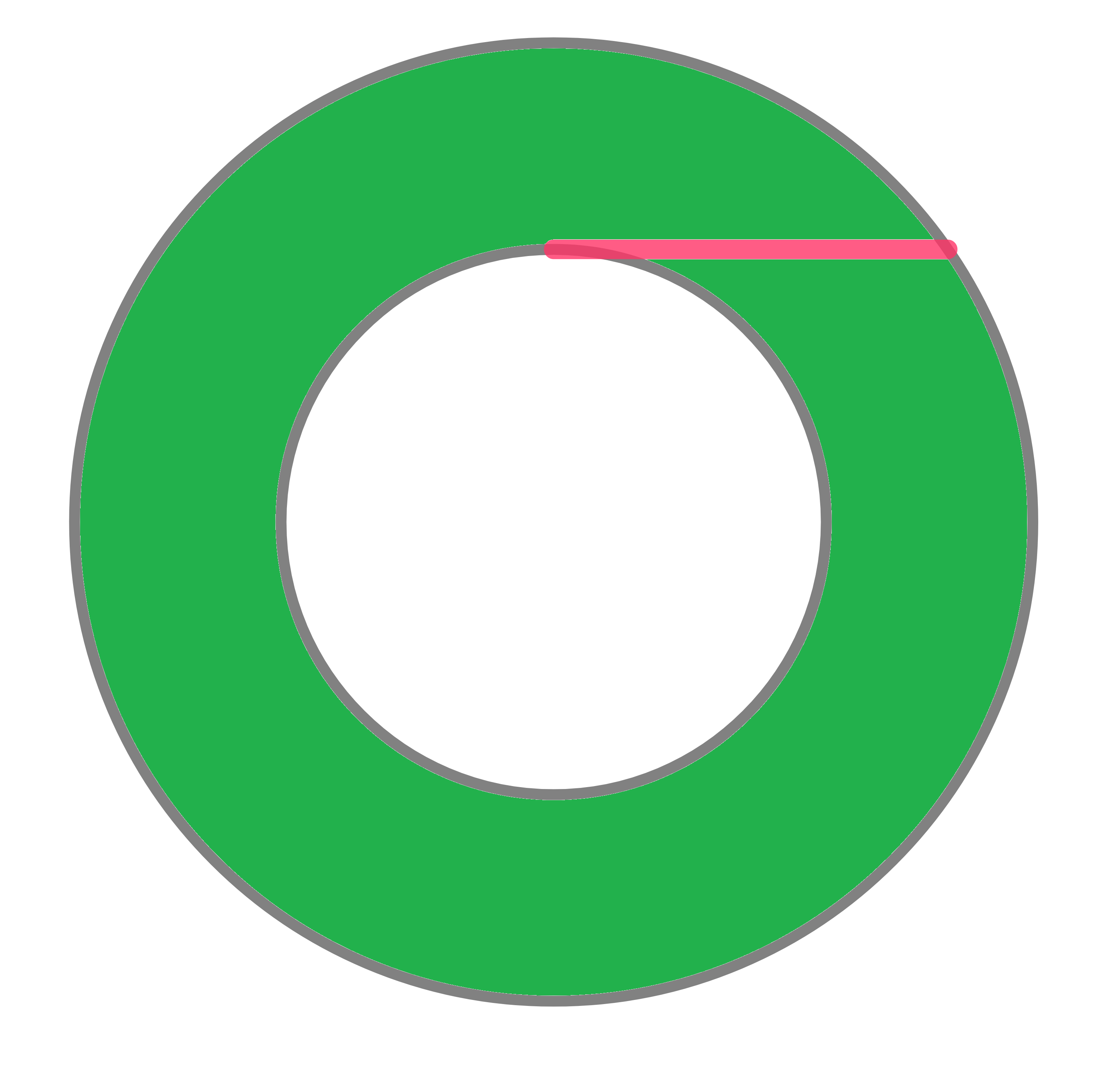Problems
Matt has built an additional support for his hut (\(AD\)), whose length is \(12\)ft, and the base \(BC\) is \(25\)ft. We also know \(AB = 20\) and \(AC = 15\). What are the distances \(|BD|\) and \(|DC|\)? Show that \(|AD|^2=|BD| \times |AC|\) in this particular case. Do you think it is true in general?

Can you build a right-angled triangle using 25 identical matches without breaking them? You have to use them all. If yes, show how. If not, show why.
On the sides of a right-angled triangle three equilateral triangles were built. Show that the areas of two of the two smaller ones sum up to the area of the larger one.
One triangle has sidelengths \(25,25\) and \(48\), and another triangle has sidelengths \(25,25\) and \(14\). Which of them has a larger area?
The marked pink segment (tangent to the inner circle) has length \(1\). Find the area of the green annulus.

A triple of natural numbers \(a,b,c\) such that \(a^2 + b^2 = c^2\) is called a Pythagorean triple. There are some small Pythagorean triples that are well-known, like \(3,4,5\) and \(5,12,13\). Let us have a look at the latter one. We can notice an interesting thing: not only \(5^2+12^2=13^2\), but also \(5^2 = 25 = 12+13\) and \(13-12=1\). Use that as an inspiration to find an idea of how to generate some more Pythagorean triples. Check if they are correct by plugging them into the equation \(a^2 +b^2 = c^2\).
Two semicircles and one circle were drawn on the sides of a right triangle. The circle whose centre is in the midpoint of the hypothenuse actually goes through the right angle corner – this is a general fact, but you don’t need to prove it here. If the two shorter sides of the triangle are \(3\) and \(4\), what is the total area of the red region?
The lengths of three sides of a right-angled triangle are all integers.
Show that one of them is divisible by \(3\).
A segment \(AB\) is a base of an isosceles triangle \(ABC\). A line perpendicular to the segment \(AC\) was drawn through point \(A\) – this line crosses an extension of the segment \(BC\) at point \(D\). There is also a point \(E\) somewhere, such that angles \(\angle ECB\) and \(\angle EBA\) are both right angles. Point \(F\) is on the extension of the segment \(AB\), such that \(B\) is between \(A\) and \(F\). We also know that \(|BF|=|AD|\). Show that \(|ED|=|EF|\).
A point \(P\) is somewhere inside the triangle \(ABC\). Show that \(AP + BP < AC + BC\). You might want to remind yourself of the triangle inequality: in any triangle \(DEF\), the side \(DE\) is always shorter than going around the other two sides, so \(DE < DF + FE\).